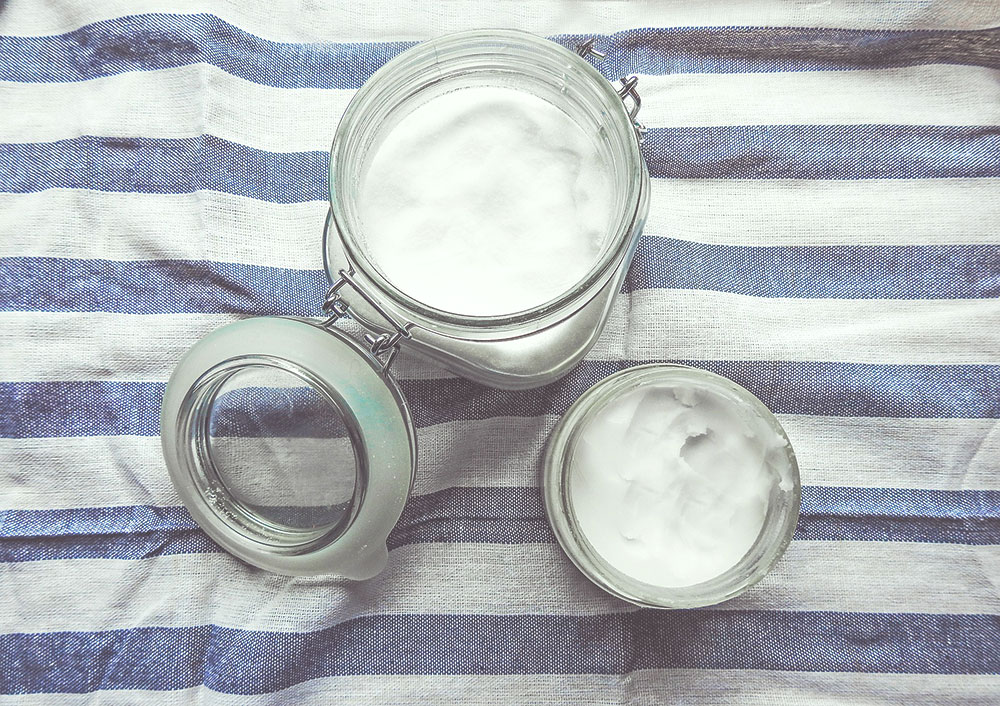How helpful is it to our health when foods are singled out as the public enemy? Let’s discuss coconut oil’s fall from grace, and what it really means in the grand scheme of things.
BY: EMILY FONNESBECK, RD, CD, CLT
By now you’ve heard the newly released recommendations from the American Heart Association (AHA) regarding coconut oil. They’ve advised against its use due to its high saturated fat content.
In other words, coconut oil has lost its health halo.
While the AHA and other research-based nutrition recommendations are reputable sources, findings or recommendations must still be looked at objectively. It also provides a perfect opportunity to reflect on the ideas of balance, moderation, and variety.
Over the past few years, social media, media outlets, and popular culture have all recommended therapeutic doses of coconut oil. Unsubstantiated claims have been made about its ability to cure, prevent, or treat health conditions. Drinking coconut oil or using large amounts of it when preparing meals are also a huge red flag. If you think about it, how is that balanced or supportive of the overall nutrient variety that is needed for good health?
But what if someone occasionally uses coconut oil as a way to add flavor to balanced meals, cook their vegetables, or bake up some cookies? There’s no need to bat an eye, despite knowing current reports coming from the nutrition world.
Why? Because focusing on one food, one food group, or one food ingredient doesn’t get us anywhere.
We must, in fact, consider the bigger picture and how it all adds together, and why it may be better if you do not obtain your nutrition information from news outlets, social media, or your friend who has an interest in nutrition without actual nutrition training. Those resources are typically alarmist, the shock factor which usually takes a very one-sided stance on issues. Nutrition information should feel reasonable and appeal to common sense.
Let’s take soy as another example.
Over the past couple of decades, soy has received a lot of publicity. Initially, news outlets highlighted research showing it could reduce the risk of certain types of cancers. When consumers heard this, they saw it as miracle and ate soy everything. As always, eventually news outlets found a study or two that found soy could actually increase the risk of certain cancer types. Then everyone blamed soy for all their health problems and it became the newest food villain.
Reality? Soy may reduce the risk of certain types of cancers.
When soy is eaten in excess of 25 grams per day (which is way more than most people would be able to eat in a day), it may increase the risk in some vulnerable populations. The key takeaway here is that soy can be included in the diet with no adverse effects when done in moderation, balance and variety.
Our current nutrition culture encourages an all-or-nothing, black or white mentality with food. However, we must remember that health can absolutely be found somewhere in the middle, and rarely operates in extremities for most individuals.
Will soy or coconut oil heal you? No.
It isn’t a miracle, but it’s also not poison.
Adapted from the original article.
Emily Fonnesbeck, RD, CD, CLT is a private practice Registered Dietitian based in Saint George, Utah. Instead of creating unnecessary restrictions, Emily focuses on helping individuals become confident and in charge of their own well-being through Intuitive Eating and Mindful Living. She is a strong believer and advocate for helping people become capable individuals who are confident in taking care of themselves. Make a visit and read more from Emily.

